Science Saturdays, Year 1: Plants
Science Saturdays are sessions which teach parents/carers and children valuable STEM skills. Our goals are to increase parents' confidence in STEM skills and STEM
activities, while providing the children opportunities to play with STEM toys, such as magnifying glasses. Another goal is to increase the community
amongst the year-group families. These sessions are appropriate for schools to use in the classroom, families to do as extra learning outside school, and/or for
families who Home School / Home Educate.
This series of webpages is intended to help others set up their own Science Saturdays. We hope these webpages are helpful and help us grow our collective STEM skills
for the future!
Team:
Mridusmita Danciu: Medical Professional
Nicolae Danciu: Aircraft Engineer
Hugo Martay
Barbara Vohmann: Quantity Surveying and Construction Management Academic
Ephraim Zulu: Quantity Surveying Academic
Sarinova Simanjuntak: Mechanical Engineering Academic
Jennifer Martay: Biomedical Engineering Academic
We focused on Plants in our first Science Saturday. The reason we started with Plants was so that the children could watch their plants grow over our 4 Science
Saturday sessions together. We used STEM Learning UK's "Science for Starters"
Plants leaflet as a basis for the session.
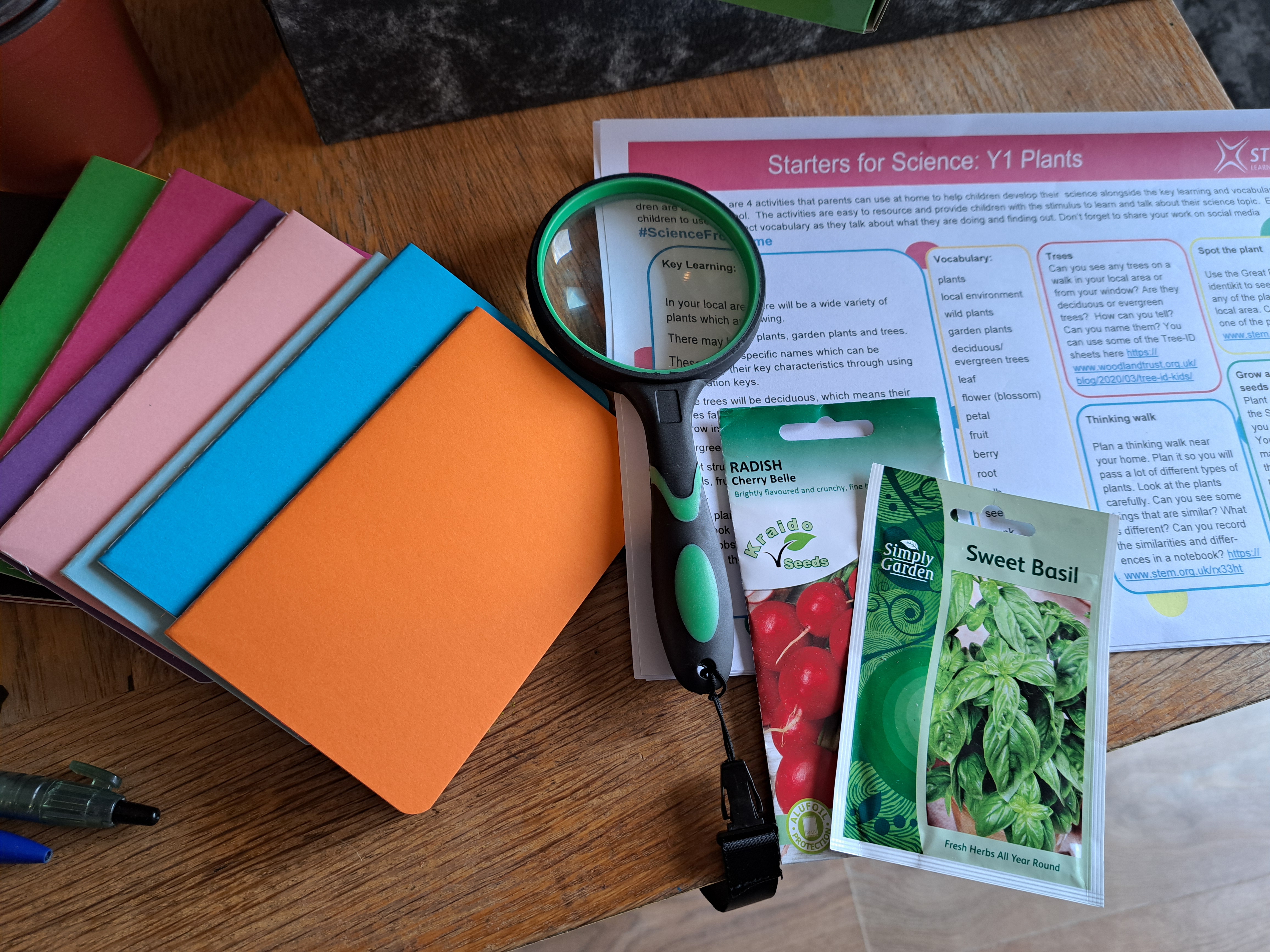
Required Materials (for 10 Families)
-10 STEM Learning leaflets on Plants, Cost = £0
-Plants (each family to bring one free plant from yard/garden/park/walk to session to discuss), Cost = £0
-
20 coloured sheets of paper, Cost = £6 for 100 sheets of 10 colors
-
Pens, crayons, highlighters, etc for drawing plants, Cost = £11.50 for 187 piece art kit
-
4 magnifying glasses, Cost = £16.98 for set of 4
-
2 USB microscopes, Cost = £18.99 each
-
10 small (10cm) flower pots, ideally with 10 name tags for pots and waterproof pen, Cost = £10.99 for 50 pots, 50 name tags, and 1 pen
-
10L of all purpose/potting compost, Cost = £7.50 for 50L of all-purpose compost (or £7.47 for 10L of potting compost)
-
2 ladels/scoops (or similar), Cost = £7.49 for pair or £0 if use ordinary spoons
-
1 watering can (or similar), Cost = £6.98 or £0 if use ordinary cup
-
1 package of sweet basil seeds (suggested due to being fast growing), Cost = £2.95
-
1 package of radish seeds (suggested due to being fast growing), Cost = £2.39
Total Cost = £91.77
Total Cost per Child (10 children total)= £9.18
Note: The above Total Cost per Child is slightly misleading! Buying from the links above will give you enough supplies for 4-5 sessions of 10 families each.
You can buy smaller quantities of potting compost, flower pots, and coloured paper if you only need 10 families' worth. We bought in medium-bulk size, however,
to re-run the sessions with other groups of families and because the price was very similar to buy for 10 families and for 50 families. Also, please note that
many of the above supplies (art supplies, magnifying glasses, microscopes) are non-consumable and can easily be re-used in other activities.
Total Cost per Child (40 children total)= £2.29
Plan for Session
1. Welcome families: Have toys available for kids to play, Have parents put on name tags so people can learn names, Ask if families are ok with pictures being taken/shared
2. Each family introduce the plant they brought: What is plant called, where did you find it, why did you chose it, etc. If multiple families bring same kind of plant
(often happens with dandelions), have kids count plants, talk about relative sizes and different parts of plant life cycle (unopened dandelion, yellow petals, white seeds)
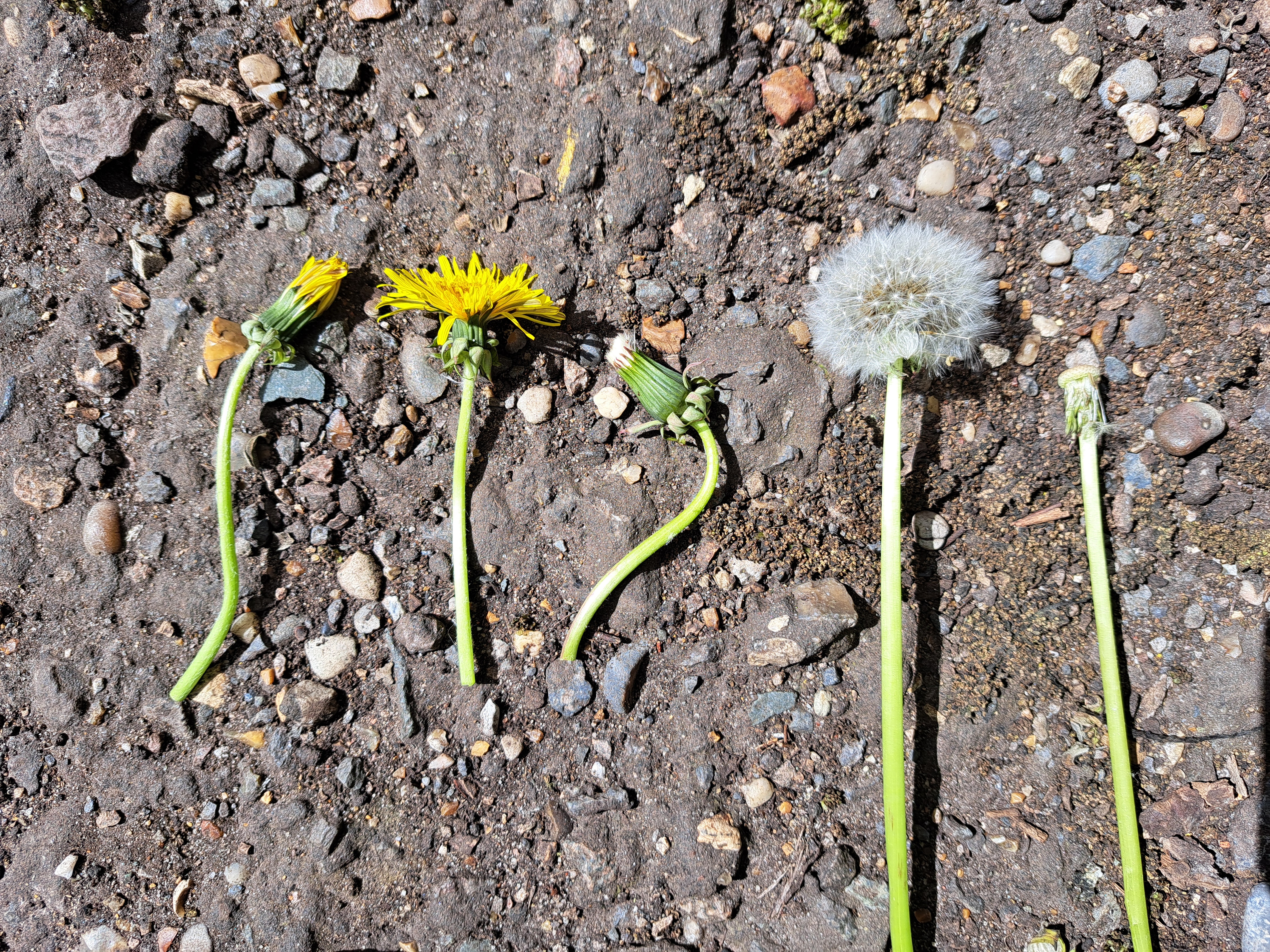
3. Introduce common vocabulary associated with plants (stem, root, petals, leaf, flower, fruit, seed, bulb, trunk, branch, wild plant, garden plant)
4. Children draw pictures of the plant they brought and label common vocabulary parts
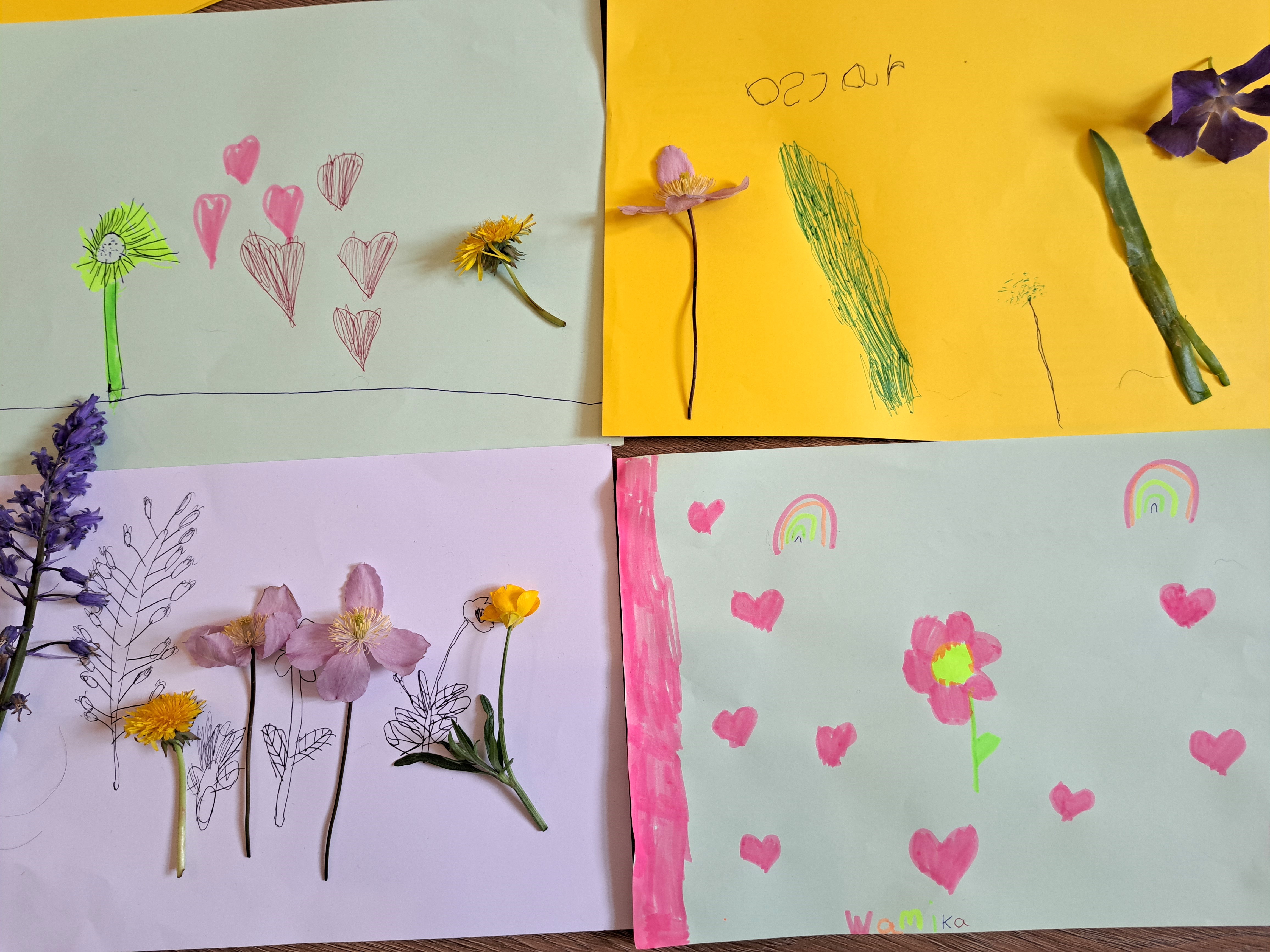
5. While children are drawing, ask parents to complete 1st survey to capture parents' confidence in STEM knowledge and activities pre-Science Saturdays
6. Families walk around garden/yard/park looking at plants using magnifying glasses and collecting interesting plants
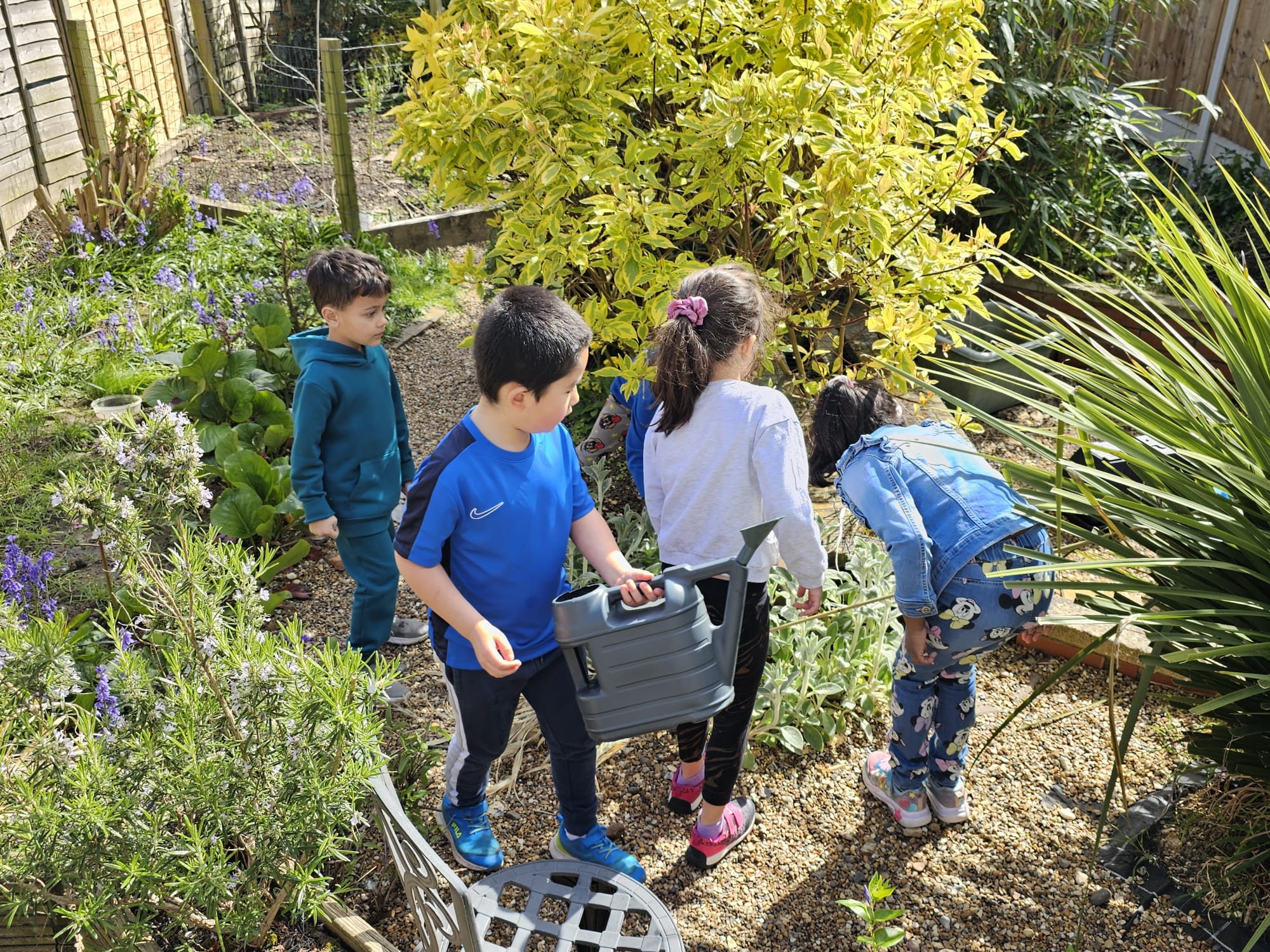
7. Families have close look at interesting plants using USB microscopes, save pictures to laptop/computer/phone
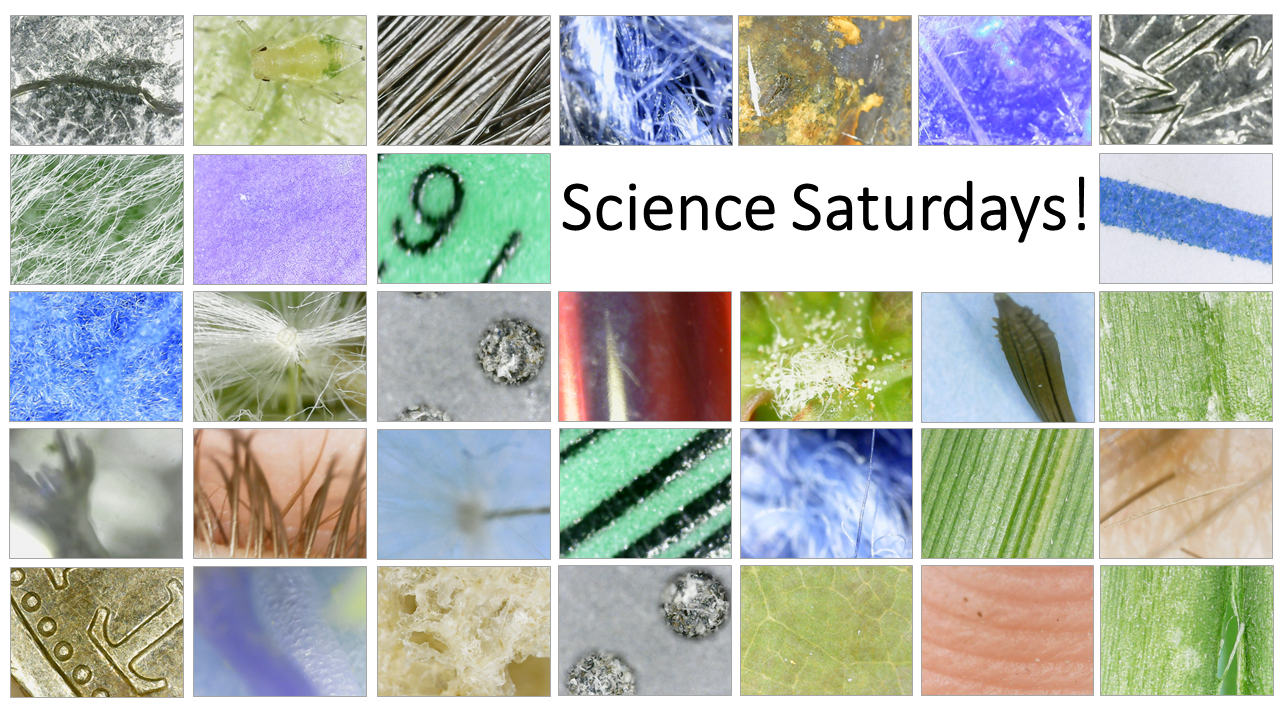
8. Families pot plants: add compost and seeds to pot, write child's name on name tag, water pot, leave pot somewhere safe (families to leave until end of last Science
Saturday, then families to take home)
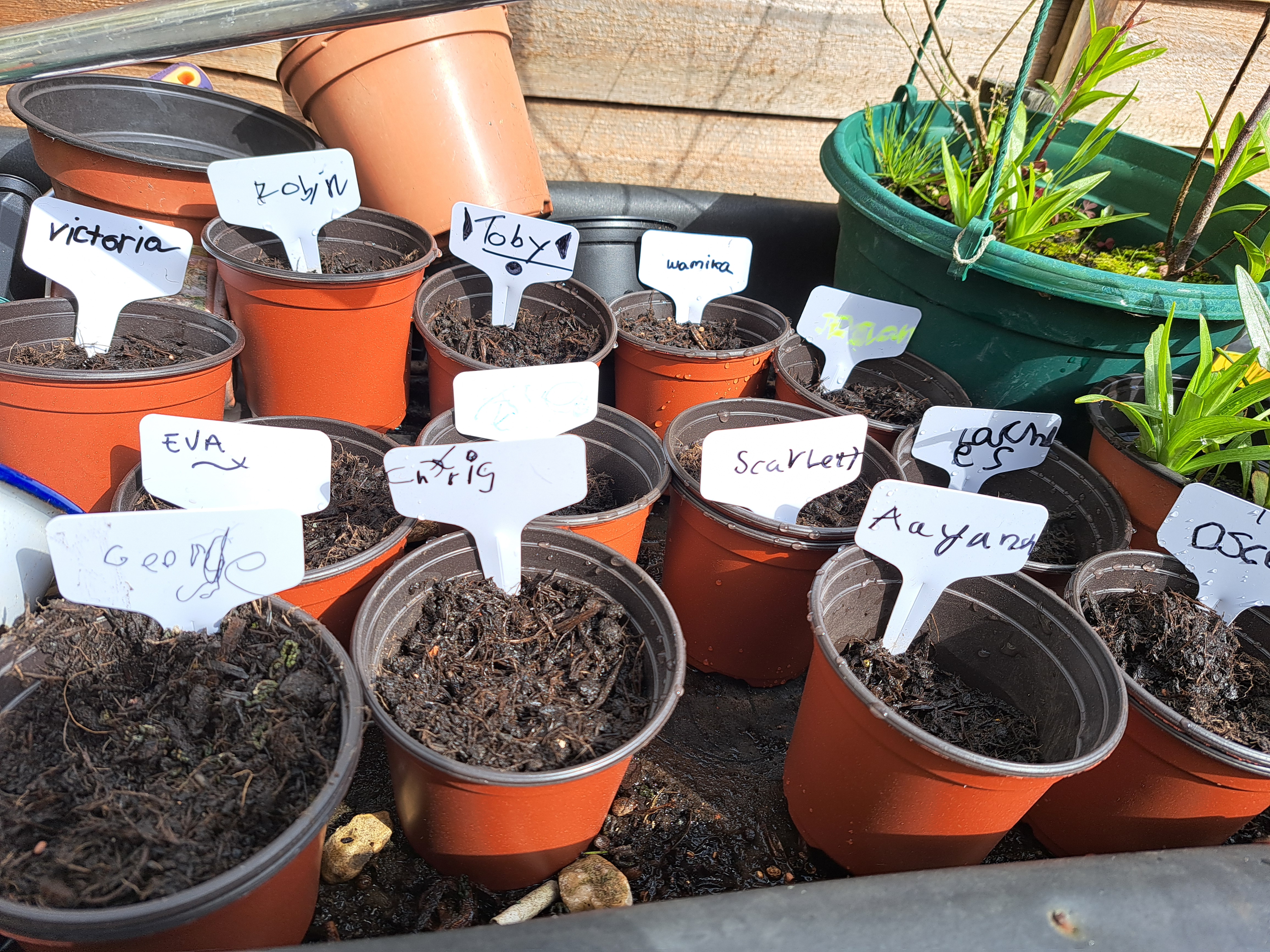
9. Organizers mention a highlight of the next Science Saturday session to keep families interested in attending!
Skills Learned/Practiced
STEM SKILLS
-Common plant vocabulary
-Counting plants
-Relative sizes of plants
-Life cycles of plants
-Using magnifying glasses
-Using USB microscope (focusing, small-scale of plant structures and possibly bugs)
-Practical experience/knowledge of how plants grow from seeds (need seeds, dirt, water, sun)
NON-STEM SKILLS
-Public speaking: explaining plants to group
-Drawing plants
-Writing name on name tag
Outputs/Take-Homes from Session
-Plant brought to session
-Drawing of plant
-Plants collected during session (from garden/yard/park/etc)
-Pictures taken from USB microscope
-Group collage of USB microscopes
-Pictures taken of families during session
-Potted plant at end of Science Saturday sessions (will take a while to grow, families can check on plants' growth from weekend to weekend)
Other Articles:
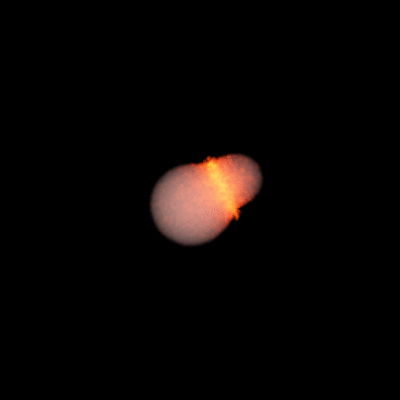
|
Moon FormationA Kotlin N-Body code, and lots of animations of the collision between Earth and a hypothetical Theia that people think created the moon. |

|
Atomistic Simulation of MetalsThis presents an interactive simulation of atoms making up a nanoscopic particle of metal. |
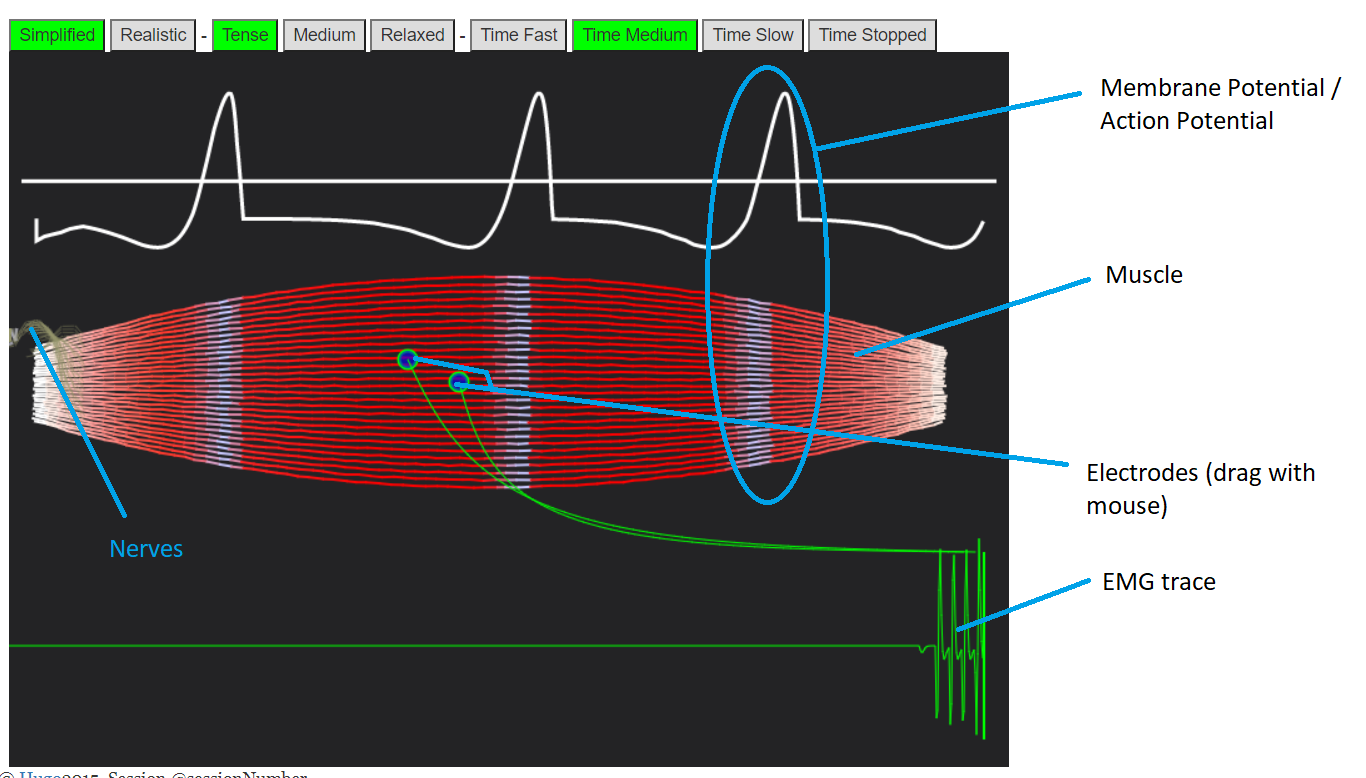
|
BodyWorks: Neuromuscular Activity / Muscle EMGAn interactive simulation showing how nerves travel to and down muscles, and how this gets picked up by EMG sensors. |
© Hugo2015. Session @sessionNumber